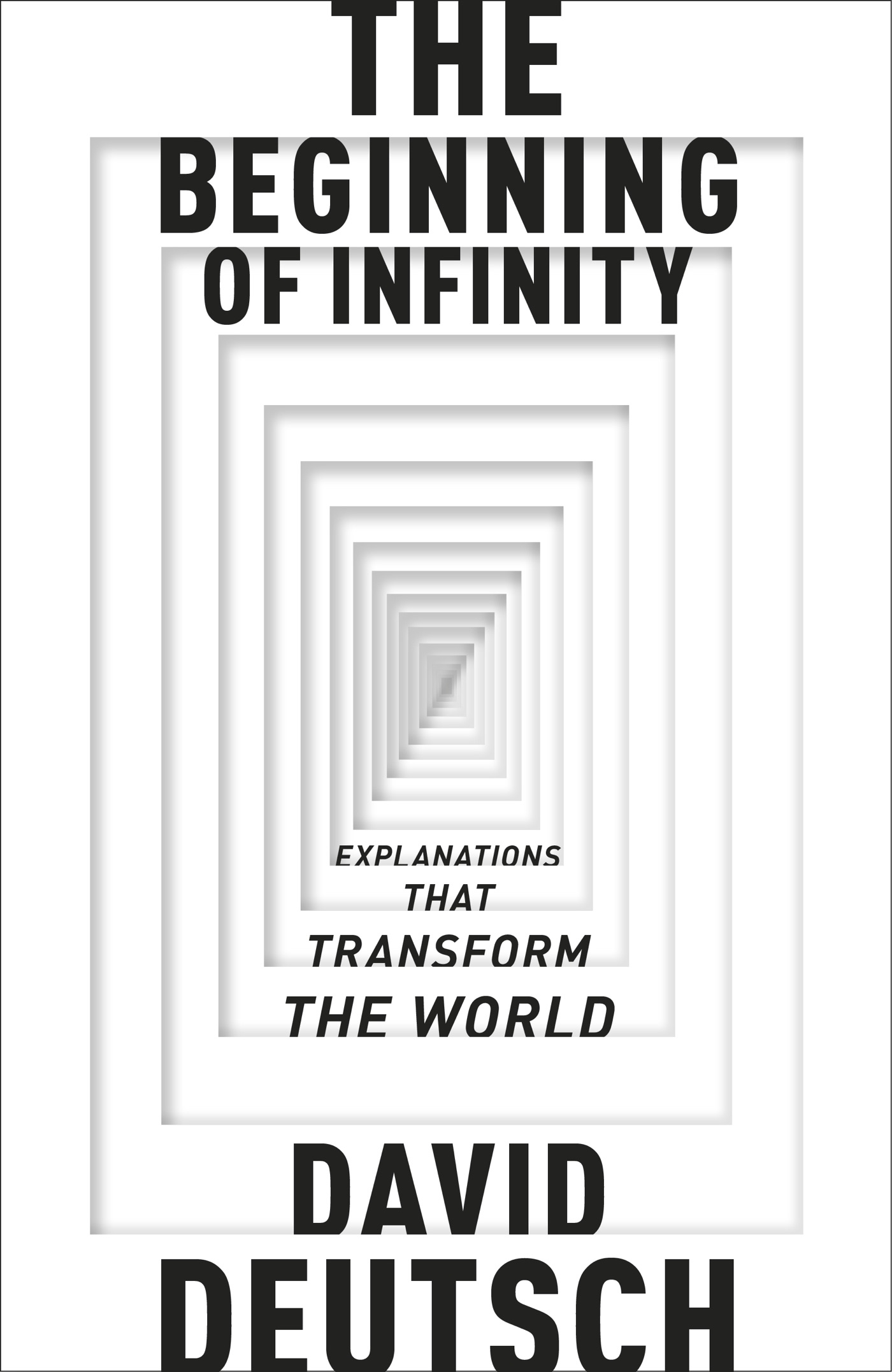The Beginning of Infinity - David Deutsch

## Metadata
- Author: **David Deutsch**
- Full Title: The Beginning of Infinity
- Category: #books
## Highlights
- Reductionism and holism are both mistakes. In reality, explanations do not form a hierarchy with the lowest level being the most fundamental. Rather, explanations at any level of emergence can be fundamental. Abstract entities are real, and can play a role in causing physical phenomena. Causation is itself such an abstraction
- Levels of emergence Sets of phenomena that can be explained well in terms of each other without analysing them into their constituent entities such as atoms.
- Reductionism: The misconception that science must or should always explain things by analysing them into components (and hence that higher-level explanations cannot be fundamental).
- Nevertheless, scientific discovery is a gradual process too; it is just that, in science, all the gradualness, and nearly all the criticism and rejection of bad explanations, takes place inside the scientists' minds. As Popper put it, 'We can let our theories die in our place.'
- I remarked that pieces of knowledge are abstract replicators that 'use' (and hence affect) organisms and brains to get themselves replicated. That is a higher level of explanation than the emergent levels I have mentioned so far. It is a claim that something abstract - something non-physical, such as the knowledge in a gene or a theory - is affecting something physical
- The evolution of biological adaptations and the creation of human knowledge share deep similarities, but also some important differences. The main similarities: genes and ideas are both replicators; knowledge and adaptations are both hard to vary. The main difference: human knowledge can be explanatory and can have great reach; adaptations are never explanatory and rarely have much reach beyond the situations
- This has given rise to a widespread misconception about emergence and explanation, known as reductionism: the doctrine that science always explains and predicts things reductively, i.e. by analysing them into components.
- When a formerly good explanation has been falsified by new observations, it is no longer a good explanation, because the problem has expanded to include those observations.
- Instead, when the physicist Ludwig Boltzmann used atomic theory to unify thermodynamics and mechanics, he was so vilified by Mach and other positivists that he was driven to despair, which may have contributed to his suicide just before the tide turned and most branches of physics shook off Mach's influence. From then on there was nothing to dis- courage atomic physics from thriving. Fortunately also, Einstein soon rejected positivism and became a forthright defender of realism. That was why he never accepted the Copenhagen interpretation. I wonder: if Einstein had continued to take positivism seriously, could he ever have thought of the general theory of relativity, in which spacetime not only exists but is a dynamic, unseen entity bucking and twisting under the influence of massive objects? Or would spacetime theory have come to a juddering halt like quantum theory did?
- Gradually, though, empiricism did begin to be taken literally, and so ly lastly
began to have increasingly harmful effects. For instance, the doctrine of positivism, developed during the nineteenth century, tried to eliminate from scientific theories everything that had not been 'derived from observation'. Now, since nothing is ever derived from observation, what the positivists tried to eliminate depended entirely on their own whims and intuitions. Occasionally these were even good. For instance, the physicist Ernst Mach (father of Ludwig Mach of the Mach-Zehnder interferometer), who was also a positivist philosopher, influenced Einstein, spurring him to eliminate untested assumptions from physics - including Newton's assumption that time flows at the same rate for all observers
- Let me define 'bad philosophy' as philosophy that is not merely false, but actively prevents the growth of other knowledge. In this case, instrumentalism was acting to prevent the explanations in Schrödinger's and Heisenberg's theories from being improved or elaborated or unified,
The physicist Niels Bohr (another of the pioneers of quantum theory) then developed an 'interpretation' of the theory which later became known as the 'Copenhagen interpretation'. It said that quantum theory, including the rule of thumb, was a complete description of reality. Bohr excused the various contradictions and gaps by using a combination of instrumentalism and studied ambiguity. He denied the 'possibility of speaking of phenomena as existing objectively' - but said that only the outcomes of observations should count as phenomena